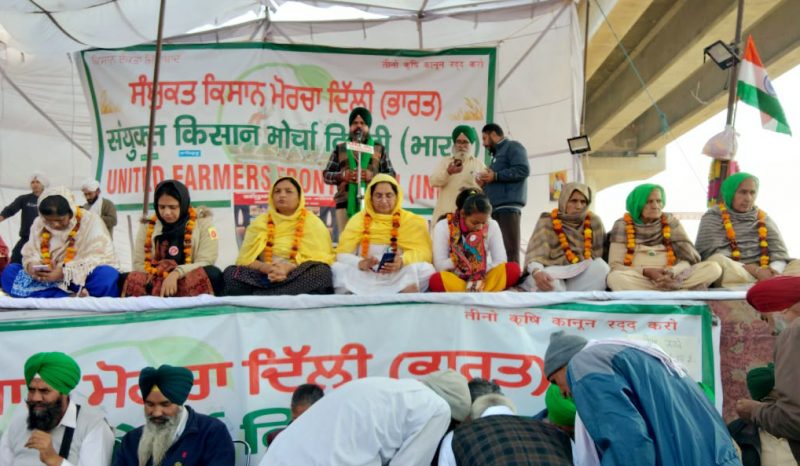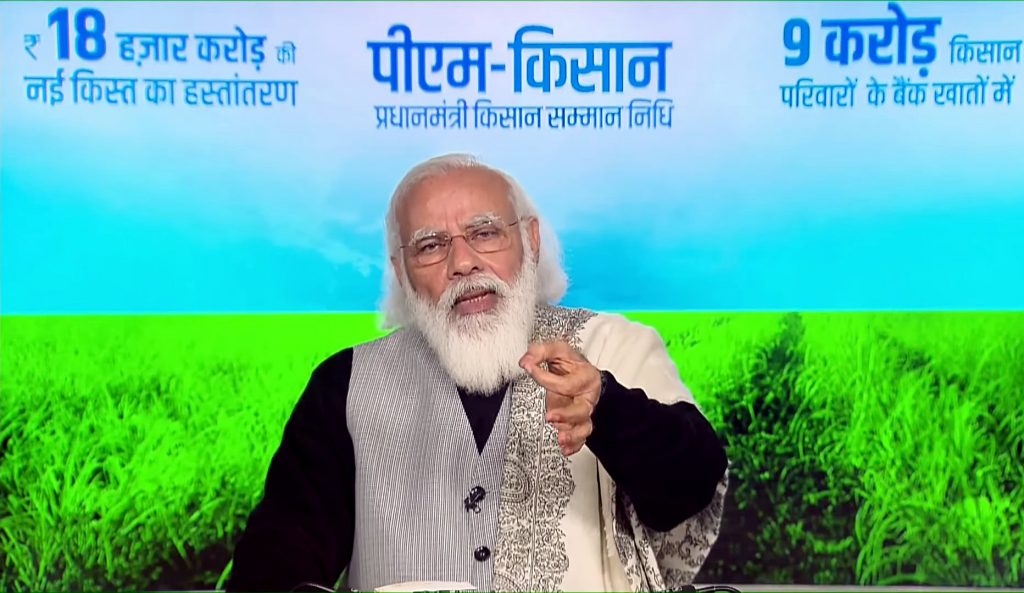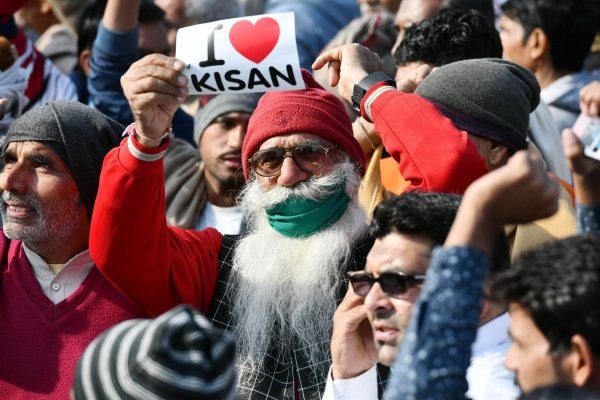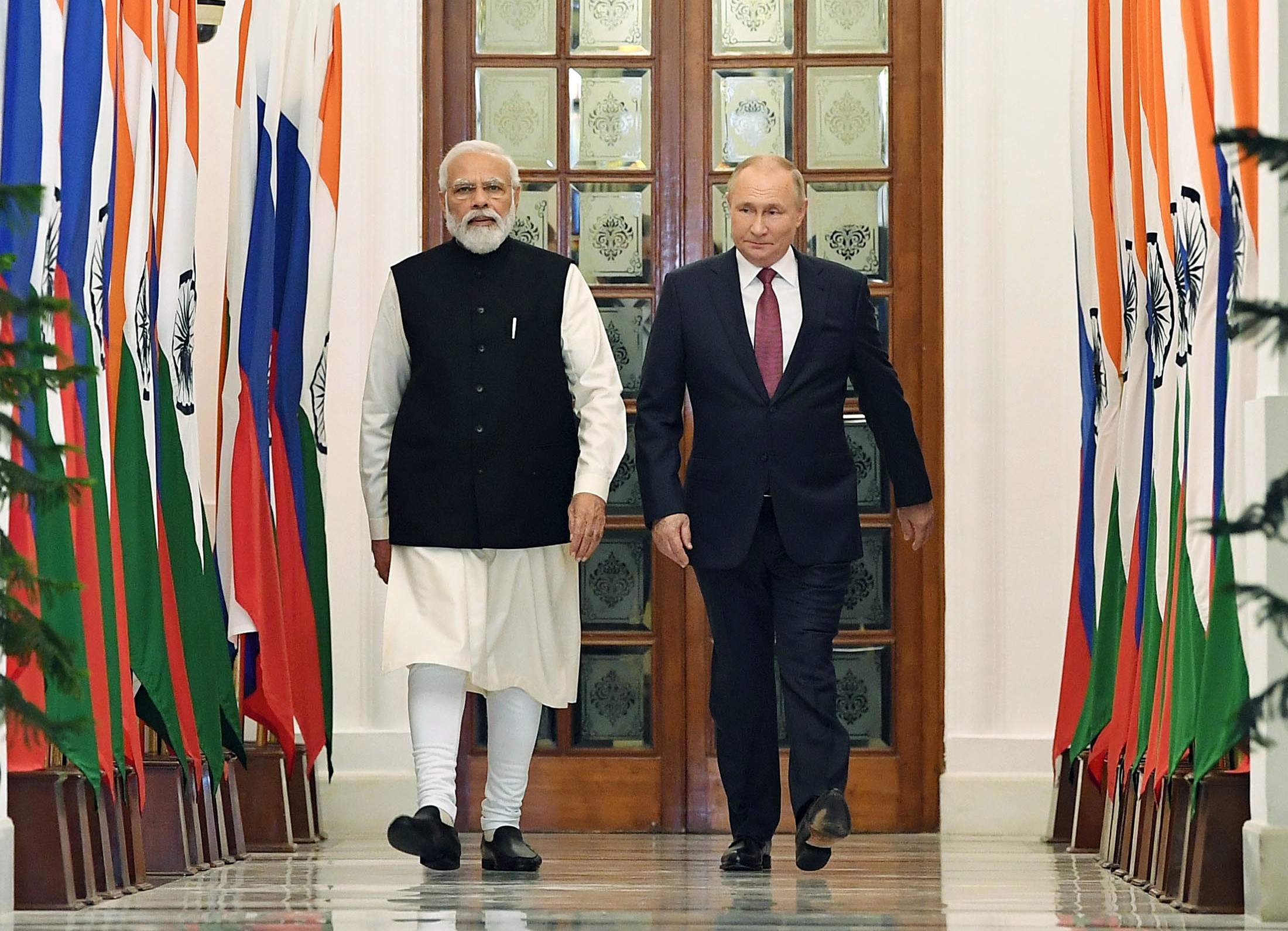The rich farmers if they want to help their brothers the small farmers, should create the distribution system for farm produce that is administered and maintained by the farmers only
Col (Ret.) Virendra S Tavathia
The Kisan Agitation in India is making waves. People on both sides of aisles are trying to make case for and against the Farmers Bill passed by the Indian Parliament in September 2020. The aim of this article is neither to support nor to condemn the Farmers Bill, but is to analyze the problems of the Farmers, the real issues and find some solutions for them. If the Farmers Bill addresses these problems, or if these problems are brought out by the leaders of the Farming community, then provisions can be made in the bill to add them, if not then the public would understand the shortcomings of the bill and hollowness of the leaders trying to be savior of the Farmers. Thanks to my friend Irfan Ali, it was an honor to be part of the meeting where I was able to listen to some award-winning well-known journalists, some Farmers Leader, retired Supreme Court Judge Mr Katju, some human rights officials and some members of farmer families, who probably showed more understanding of the Farmers problems than the journalists and the Farmer Leaders.
Pandit (Pt.) Jawahar Lal Nehru, our first Prime Minister, was a towering figure. His contribution in the independence of India can’t be ignored. While he did well to bring in industrial revolution and creating of Institutions like IIT, his neglect of the Armed Forces and Farmers, and his inclination towards Soviet Union style socialism was detrimental to India’s rapid progress. We must thank China for giving us a beating in 1962, that opened the eyes of our political leaders and taught them the basic lesson, that defense and development must go hand and gloves for the prosperity of the nation. In the past 73 years all governments including the current one, have given the slogan to fight poverty, yet we can’t say that we have achieved any notable success. We are struggling and probably going from bad to worse.
Immediately after getting independence, it was difficult for anyone to stand up and speak against Pt. Nehru. A situation that has existed in Congress Party whenever the members of the Nehru Family have been in charge of the party. Pt. Nehru wanted to nationalize the entire land and do the farming on Soviet Model. It was Chaudhary (Ch.) Charan Singh a true son of the soil who opposed Mr. Nehru’s idea in the Nagpur Convention of Congress Party in 1959. Of course, he paid the penalty for being ignored within the Congress that led to his leaving the Party and forming Bhartiya Kranti Dal in 1967. After 1959 his popularity among the farming community grew to new heights and of the 100 seats his party contested in 1967, 99 of them won. With no party in the state of Uttar Pradesh gaining a clear majority, it led to the first coalition government in UP. An intelligent person, a good economist, and a down to earth person, Ch. Charan Singh understood the problems of our Farmers and introduced the minimum support price for Sugarcane in the state. The sugarcane was sold in the open market for Rs 4 per quintal at that time. It is unfortunate that the corrupt system has been winning in most cases, and Ch. Charan Singh lost his majority in less than a year.
Let us now discuss some problems of the Farmers. How does the minimum support price affect farmers and the general public? We want to provide basic necessities of life to our general public at the most affordable cost. Food is one of those commodities. In fact, whatever farmer produces needs to be given to the general public at the most affordable price except some crops like tobacco which are not essential for survival of the public. If that be so, how do we maintain the balance? If the government keeps MSP higher for the crops then the general public will not get it at an affordable price. If we keep the MSP minimum then the Farmer will not get enough incentive to do farming. One of the ways to strike the balance is by reducing the middleman’s commission and wastage during the distribution. Some of the provisions of the Farmer’s bill introduced by the government address some of such issues. For the past 73 years our middlemen are making fortunes through the farm produce, and any change in the system will be met with full force and even violently in some cases. The current farmers agitation is just the glimpse of it. I remember in 1986 while training the soldiers in the outskirts of Mhow Cantonment in Madhya Pradesh, I happened to see a farmer loading his crop of peas into the vehicle. I just asked him what rate he was getting for his crop. He told me that the peas in Mhow market were going for Rs 1 per kg. Next day, I went to buy vegetables in the market and found peas in retail were being sold at Rs 4 per kg. I fully understand that peas are a perishable item and there is a likelihood of some quantity of it being wasted out. We also need to include the handling charges, cost of buying in bulk and then selling in retail and the profit margin of the Aadhati, the retail price could still not be four times the wholesale price.

By allowing the farmers to sell their product anywhere, the government has tried to break the monopoly of the Mandis and Aadhatis. Then why are the farmers agitating? There are two categories of Farmers in our country. One who has big land holdings and is influential in the administrative and political system. For them the existing environment suits. Any changes in the system dilutes their authority and profitability, and hence the objection to the current farmer’s bill. The second category is the main population of farmers with small land holdings and people who live hand to mouth. They can’t afford labor to work in their fields and do most of the work themselves. Such farmers will be benefited by the new law. The readers must understand that November December is the wheat sowing season in the country. This is also the season of harvesting the sugarcane crop. How could a poor farmer leave his work and be in Delhi. Only those farmers who could afford labor to work in their field would be able to afford their absence from the village in this season.
There are provisions in the bill where corporations could buy as much grain as they like. This must be limited otherwise it might result in hoarding by the big corporations resulting in price manipulation. So, the Farmers are right in their demand for a guarantee within the law about MSP and a protection against hoarding and price manipulation by big corporations.
The other issue that is being talked about is “Contract Farming”. I think this has already been going on. The fear is being spread that corporations with their ability to hire big attorneys will be able to manipulate the farmers, and eventually might take away their land. The fear is real and could happen in any capitalist society. The government could add a provision in the law to protect the land holding of the farmers. Contract Farming is not a bad idea to start with. The problem is we as a nation have to ensure that our farmers produce what is needed within the country. We should not be producing for export in order to get more money and then creating a shortage of essential products within the country leading us to become dependent on foreign supply for those items. A balance needs to be maintained between profits and essential commodities. Also removing some of the essential items from the list of essential commodities is a concern. In fact, it should be the concern of the common men rather than Farmers.

What needs to be done by the Government and Farmers? I personally feel that a dialogue by both is necessary. The government probably cannot go back and repeal the law just passed for that would not be a good idea for our democracy, but necessary provisions must be made to address the concerns of the farmers. The rich farmers and middlemen who are to lose due to the new law are not going to give up easily as they have the money power. The opposition parties are taking this as an opportunity to defame the government. The government must deal with them firmly. While we have the right to express our views and run an agitation, we don’t have the right to block the roads, or cause inconvenience to the public.
The rich farmers if they want to help their brothers the small farmers, should create the distribution system for farm produce that is administered and maintained by the farmers only. It will help create employment for the village youth. The government has already promised to create the chain of cold storage to hold the produce for a longer duration. The pilferage of precious food due to Rats, insects, poor storage facilities and indifferent attitude of the government servants in the food industry who get their salary in time and have no skin in the game needs to be addressed intelligently. The farmers reforms are not a problem that can be discussed or solved in a few paragraphs. The idea of this article was to bring some interesting facts of the issue to the public and pay tribute to the person who really was a Kisan Leader.


























